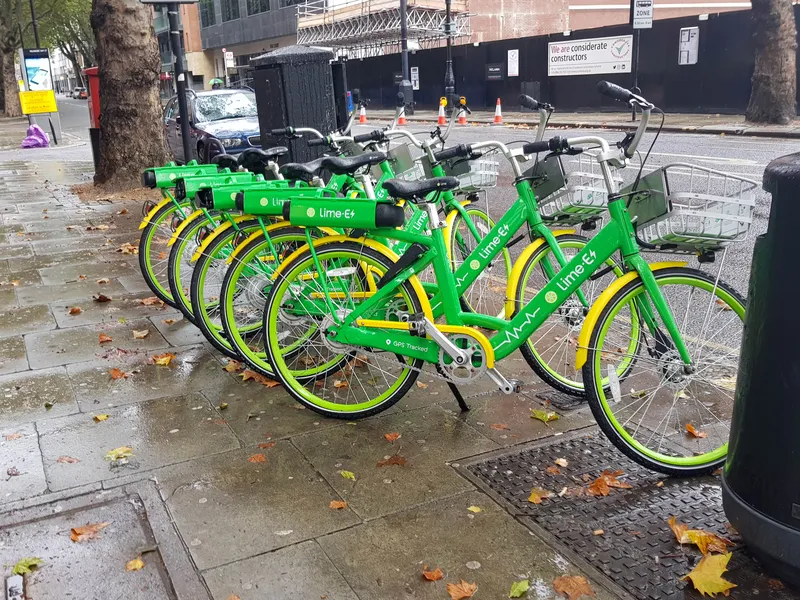Speaking at the World Mobility Leadership Forum in Detroit this week, José Viegas, Secretary-General of the International Transport Forum (ITF) will tell world mobility leaders that smart methods for sharing vehicles hold the key to solving a city’s mobility issues, from congestion and air quality to better access to jobs or education.
According to ITF, most negative impacts of current urban mobility patterns stem from the extraordinarily inefficient use of the private car. While a car is one of the most
September 29, 2016
Read time: 3 mins
Speaking at the World Mobility Leadership Forum in Detroit this week, José Viegas, Secretary-General of the International Transport Forum (ITF) will tell world mobility leaders that smart methods for sharing vehicles hold the key to solving a city’s mobility issues, from congestion and air quality to better access to jobs or education.
According to ITF, most negative impacts of current urban mobility patterns stem from the extraordinarily inefficient use of the private car. While a car is one of the most capital-intensive investments households make, on average it is used 50 minutes out of 24 hours and carries 1.2 to 1.6 passengers.
Traditional public transport, however, is not attracting enough passengers to contain the growth of car traffic in cities: Few people accept two or more transfers given an alternative. Crowded buses or trams are another issue for potential users.
Car sharing is no panacea either: It does little to reduce the total vehicle mileage and may even increase solo driving if prices are low enough.
Based on real mobility data from Lisbon, Portugal, ITF modellers replaced all scheduled buses and private cars in that city with shared taxis and on-demand 8- and 16-seater minibuses. The shared taxis offer door-to-door service and the minibuses a street corner-to-street corner service (max. 400m walk, no transfer needed, seating guaranteed). They are complemented by the existing high-capacity metro/subway.
The simulation shows a dramatic improvement in urban mobility, but also the liveability of a city; only three per cent of today’s number of vehicles needed to provide the same trips, while 95 per cent of current parking space parking is no longer required and available for different uses. It also showed that congestion disappears, with 23 per cent to 37 per cent fewer vehicle miles travelled and traffic CO2 emissions fall by 34 per cent, without any new technology.
There would also be knock-on effects including a further in vehicle miles travelled should be expected as walking and cycling conditions improve dramatically, along with a further reduction of CO2 emissions as clean technologies and better and more equal access to jobs, health services and educational institutions.
To further test the model, the ITF is preparing similar simulations for five more cities, among them Auckland (New Zealand), Dublin (Ireland) and Helsinki (Finland). Two more cities will be announced soon.
According to ITF, most negative impacts of current urban mobility patterns stem from the extraordinarily inefficient use of the private car. While a car is one of the most capital-intensive investments households make, on average it is used 50 minutes out of 24 hours and carries 1.2 to 1.6 passengers.
Traditional public transport, however, is not attracting enough passengers to contain the growth of car traffic in cities: Few people accept two or more transfers given an alternative. Crowded buses or trams are another issue for potential users.
Car sharing is no panacea either: It does little to reduce the total vehicle mileage and may even increase solo driving if prices are low enough.
Based on real mobility data from Lisbon, Portugal, ITF modellers replaced all scheduled buses and private cars in that city with shared taxis and on-demand 8- and 16-seater minibuses. The shared taxis offer door-to-door service and the minibuses a street corner-to-street corner service (max. 400m walk, no transfer needed, seating guaranteed). They are complemented by the existing high-capacity metro/subway.
The simulation shows a dramatic improvement in urban mobility, but also the liveability of a city; only three per cent of today’s number of vehicles needed to provide the same trips, while 95 per cent of current parking space parking is no longer required and available for different uses. It also showed that congestion disappears, with 23 per cent to 37 per cent fewer vehicle miles travelled and traffic CO2 emissions fall by 34 per cent, without any new technology.
There would also be knock-on effects including a further in vehicle miles travelled should be expected as walking and cycling conditions improve dramatically, along with a further reduction of CO2 emissions as clean technologies and better and more equal access to jobs, health services and educational institutions.
To further test the model, the ITF is preparing similar simulations for five more cities, among them Auckland (New Zealand), Dublin (Ireland) and Helsinki (Finland). Two more cities will be announced soon.








